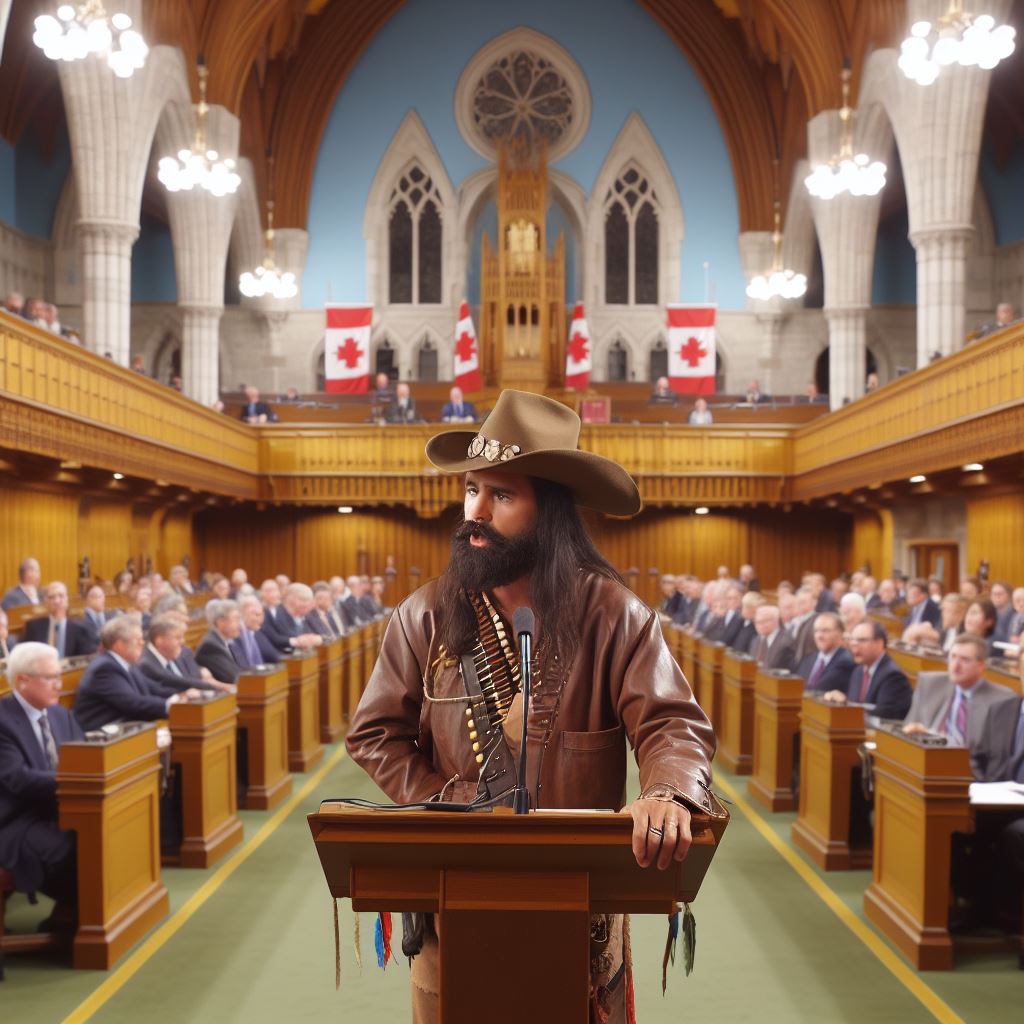Introduction
Canadian politicians play a crucial role in shaping the country’s governance and policies, and their retirement plans hold significance.
The purpose of this blog post is to provide an insightful overview of retirement plans for Canadian politicians.
In the realm of public service, where the rigors of governance demand unwavering dedication, the contemplation of retirement for Canadian politicians unveils a nuanced landscape.
Beyond the political arena’s visible challenges, the intricacies of devising retirement plans reflect the evolving nature of political life in Canada.
This exploration delves into the multifaceted considerations, financial dimensions, and ethical implications that underscore the retirement plans tailored for those who have dedicated their careers to shaping the nation’s destiny.
As we navigate this terrain, the interplay between public service, personal aspirations, and fiscal responsibility becomes a pivotal lens through which we examine the unique retirement journeys of Canadian politicians.
History of Retirement Plans for Canadian Politicians
Evolution of retirement benefits for public office holders in Canada
Prior to 1965, Canadian politicians did not have any official retirement benefits.
In 1965, the Pension Act was introduced to provide retirement benefits to federal politicians.
Initially, the retirement benefits were modest and did not attract much attention.
Over time, public pressure and political will led to improvements in the retirement plans.
One major milestone was the introduction of survivor benefits for the spouses of deceased politicians.
Another significant development was the inclusion of disability benefits for politicians who became physically or mentally incapable of performing their duties.
These enhancements aimed to provide better financial security for politicians after their service.
Overview of the Pension Act and the benefits it provides
The Pension Act is the legislation that governs retirement benefits for Canadian politicians.
It establishes the eligibility criteria, contribution rates, and the calculation of pension amounts.
Under the Act, politicians must contribute a portion of their salary towards their retirement plan.
Unlock Your Career Potential
Visualize a clear path to success with our tailored Career Consulting service. Personalized insights in just 1-3 days.
Get StartedThe amount they receive upon retirement is based on their years of service and average earnings.
Politicians become eligible for retirement benefits after serving a certain number of years in office.
The Pension Act also provides for ancillary benefits such as healthcare coverage and a death benefit.
Key changes made to retirement plans over the years
In 1985, the contribution rates for politicians were increased to ensure the sustainability of the plans.
Subsequent amendments in 1992 and 2003 further adjusted the contribution rates and pension calculations.
Changes were also made to address public concerns over perceived generous benefits for politicians.
These changes included increasing the retirement age and reducing the overall pension amounts.
The objective was to strike a balance between providing adequate retirement security and being fiscally responsible.
Comparison to retirement plans of other professions
Retirement plans for Canadian politicians have often been a subject of public scrutiny and criticism.
Compared to retirement plans in other professions, politicians’ benefits are seen as more favorable.
Some argue that the benefits are disproportionately generous compared to what the average Canadian receives.
However, supporters argue that politicians’ retirement plans need to attract capable individuals to public service.
They believe that offering competitive benefits is necessary to encourage talented individuals to enter politics.
It is important to strike a balance between providing reasonable benefits and ensuring fiscal responsibility.
Land Your Dream Canadian Job with a Perfect Resume
Unlock opportunities by tailoring your resume for Canadian employers. ATS-optimized and aligned with industry standards, this service boosts your chances of getting noticed and hired.
Start NowIn short, the history of retirement plans for Canadian politicians shows an evolution towards better benefits and increased financial security.
The Pension Act has been instrumental in providing retirement benefits to politicians, including survivor and disability benefits.
Over the years, changes have been made to address public concerns and strike a balance between providing adequate retirement security and being fiscally responsible.
Comparisons to retirement plans in other professions highlight both criticism and support for politicians’ benefits.
Ultimately, finding the right balance is crucial in ensuring fair and sustainable retirement plans for Canadian politicians.
Read: Canadian Women in Politics: Challenges
Current Retirement Benefits for Canadian Politicians
Eligibility criteria for retirement benefits
- Politicians must have served at least six years in the House of Commons or the Senate.
- They must be at least 55 years old in order to qualify for these benefits.
- Members who resign or are defeated in elections are also eligible for retirement benefits.
Calculation of pension amounts
- Pension amounts are calculated based on a formula that takes into account the average of the highest salary and the number of years in service.
- For each year of service, politicians receive two percent of their average salary.
- The maximum pension that can be earned is 75 percent of the average salary.
Additional benefits and allowances
- Canadian politicians also receive additional benefits such as healthcare coverage.
- They can participate in the Members of Parliament Retirement Compensation Arrangements, which include life insurance, dental and vision coverage, and survivor benefits.
- These benefits help ensure a secure retirement for Canadian politicians.
Impact of length of service on retirement benefits
- The longer a politician serves, the higher their retirement benefits will be.
- Politicians with more years of service will receive a larger pension amount.
- This incentivizes politicians to stay in office for longer periods.
Canadian politicians enjoy a generous retirement plan that provides them with financial security after their political careers.
While critics argue that these benefits are excessive, proponents stress the importance of attracting and retaining qualified individuals in public office.
By offering retirement benefits, politicians are motivated to serve for longer periods, bringing their experience and expertise to policymaking.
These benefits also help ensure that politicians have a smooth transition into retirement, without financial hardships.
Read: Youth in Politics: Canada’s Rising Stars
Criticisms and Controversies Surrounding Retirement Plans
Public perception of generous retirement benefits for politicians
- The public often perceives retirement benefits for politicians as excessively generous.
- Many question why politicians receive preferential treatment when it comes to retirement plans.
- This perception creates an image of politicians as disconnected from the needs of ordinary citizens.
- Politicians who receive substantial pensions can be seen as out of touch with reality.
- Public frustration builds when politicians retire with significant financial security while many struggle.
Arguments for and against the current system
- Supporters argue that generous retirement benefits are needed to attract qualified individuals into politics.
- They believe that politicians deserve higher compensation due to the demands and responsibilities of their positions.
- Others argue that politicians should not receive special treatment and should rely on personal savings like the general population.
- Opponents criticize retirement plans, believing they create a sense of entitlement among politicians.
- They argue that these benefits contribute to the overall dissatisfaction with the political class.
Recent debates and proposed reforms
- In recent years, there have been increased debates on the fairness and sustainability of the current retirement system.
- Some proposed reforms include reducing pension amounts and aligning them with the average citizen’s retirement plans.
- Others suggest implementing a contributory system where politicians contribute to their own retirement funds.
- These debates aim to address public concerns about the perceived lavishness of retirement benefits for politicians.
- Efforts are being made to ensure that retirement plans are more reflective of the current economic and societal realities.
Transparency and accountability issues
- One of the main controversies surrounding retirement plans is the lack of transparency and accountability in the system.
- The public often feels left in the dark about the details of politicians’ retirement benefits.
- There is a call for greater transparency to ensure that taxpayers’ funds are being used responsibly.
- Critics argue that politicians should disclose their pension amounts and how they are calculated.
- Accountability measures would help restore public trust and ensure that retirement plans are fair and justifiable.
Read: How Canadian Politicians Influence Policy

International Perspectives on Retirement Plans for Politicians
Comparison to retirement plans in other countries
- Retirement plans for Canadian politicians can be compared to those in other countries.
- Understanding the differences can provide valuable insights into the Canadian system.
- Each country has its own unique approach and level of generosity in providing benefits.
- An analysis of these plans can help identify areas for improvement in the Canadian system.
- By examining other countries’ plans, we can gauge the adequacy of Canadian politicians’ retirement benefits.
Instances of countries with more or less generous benefits
- Some countries offer politicians more generous retirement benefits than Canada.
- For example, in the United States, retired politicians receive pension benefits for life.
- Other countries, like Australia, have stricter limitations on politicians’ retirement benefits.
- Comparing these instances can shed light on potential adjustments to the Canadian system.
- We can learn from countries with more generous benefits or stricter regulations to find a balanced approach.
Learning from international best practices
- Studying international best practices in retirement plans for politicians can be beneficial for Canada.
- Countries like Sweden have implemented innovative approaches to ensure sustainable retirement benefits.
- Germany has a transparent system that provides clarity on politicians’ retirement benefits.
- Approaching retirement plans with a global perspective can lead to improvements in Canada.
- Examining successful practices can guide policymakers in designing a fair and efficient system.
In brief, comparing retirement plans for Canadian politicians to those in other countries can reveal insights and promote improvements.
Analyzing countries with more or less generous benefits allows us to find a balanced approach.
Elevate Your LinkedIn Profile for Canadian Success
Attract top Canadian recruiters by optimizing your LinkedIn profile. Boost your visibility with compelling keywords, a standout summary, and a professional presence that makes you unforgettable.
Get StartedLearning from international best practices can guide policymakers in designing a fair and sustainable system for Canadian politicians’ retirement benefits.
Read: Understanding Political Campaigns in Canada
Future Outlook and Reforms
Analysis of the current political climate and possible reforms
- The current political climate in Canada regarding retirement plans for politicians is fraught with controversy.
- Many Canadians have expressed their dissatisfaction with the generous benefits provided to politicians after they leave office.
- To address these concerns, there have been calls for significant reforms to the retirement plans of Canadian politicians.
- Some reforms could include a reduction in the overall benefits and privileges enjoyed by politicians post-retirement.
- Another option could be the introduction of a more transparent and accountable system for determining retirement benefits.
- It is important to analyze the current political climate to understand the urgency and necessity of these reforms.
Proposed changes to address controversies and public concerns
- One proposed change is to have politicians contribute a higher percentage of their salaries towards their own retirement plans.
- This would ensure that politicians have a vested interest in the sustainability and affordability of their own retirement benefits.
- Another proposal is to limit the number of years that politicians can receive retirement benefits.
- By imposing a cap on the length of time politicians can benefit from these plans, it would prevent excessive payouts.
- Additionally, there is a suggestion to align the retirement plans of politicians more closely with those of the general public.
- This means basing retirement benefits on the average Canadian’s pension plan rather than providing excessive privileges.
Role of public opinion, media, and advocacy groups in shaping reforms
- Public opinion plays a crucial role in influencing policymakers’ decisions regarding retirement plans for politicians.
- The collective sentiment of citizens can put pressure on politicians to implement necessary reforms.
- Media coverage and scrutiny can also bring attention to the controversy surrounding retirement plans.
- Journalists have the power to highlight abuses and spark public debate on the issue.
- Advocacy groups and organizations dedicated to government transparency and accountability can also play a significant role.
- These groups often push for reforms, provide research and analysis, and lobby policymakers for change.
In a nutshell, the future outlook for retirement plans for Canadian politicians depends on the analysis of the current political climate.
Proposed changes, such as increased personal contributions, limitations on benefit duration, and alignment with public pension plans, aim to address controversies and public concerns.
Public opinion, media coverage, and advocacy groups will continue to shape these reforms, holding politicians accountable for their retirement benefits and ensuring a more equitable system for all Canadians.
Conclusion
Throughout this blog section, we have examined the retirement plans for Canadian politicians.
We discussed the generous pension benefits provided to Members of Parliament and Senators, such as the defined benefit plan.
We also explored the controversies surrounding these plans, including concerns about their sustainability and fairness.
Furthermore, we highlighted the staggering amount of taxpayer funds allocated for these pension benefits.
It is evident that the retirement plans for Canadian politicians are highly favorable compared to those of the general public.
While it is important to provide some level of financial security for politicians after their public service, the current system raises legitimate concerns about fairness and fiscal responsibility.
A reassessment and potential reform of these retirement plans are necessary to address these issues.
As Canadian citizens, it is crucial that we stay informed and actively participate in political conversations surrounding retirement benefits for politicians.
By engaging in meaningful dialogue, sharing our concerns, and advocating for change, we can contribute to a more equitable and sustainable retirement system for all Canadians.




